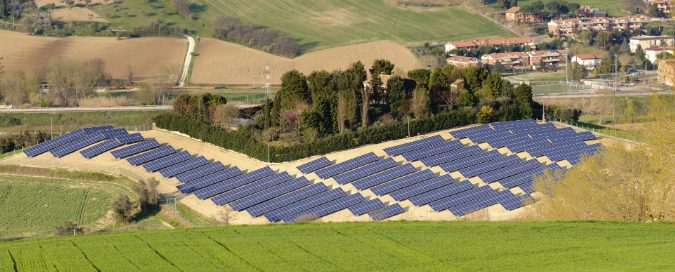By working to certify renewable energy projects as responsible, EO hopes to align benefits to local stakeholders, local environments, and the global climate.
Climate change is the most urgent challenge facing modern civilization. Since the vast majority of climate-altering greenhouse gas emissions come from energy—specifically burning fossil fuels for transportation and electricity generation—shifting to low- and no-carbon renewable energy sources is a crucial strategy to curb climate change and avoid global catastrophe.
But if you trace renewable energy back to its source—turbines spinning in the wind, solar panels soaking up sunlight, or rivers driving hydroelectric generators—it has more in common with oil and gas than many people realize. Just like an oil or gas well, a solar farm is an industrial installation that can have profound impacts on surrounding people and ecosystems. And as is the case with oil and gas production, the people, animals, and plants that are directly affected by renewable energy developments rarely enjoy the benefits of the project; consumers of energy are often hundreds or thousands of miles away from where that energy (whether in the form of fuel or electricity) originated.
That’s why Equitable Origin announced today that we have begun work toward certifying responsible renewable energy projects in the same way we certify responsible oil and gas operations.
Over the last five years, we've heard one question again and again from stakeholders: do you certify renewable energy projects? While the climate benefits of renewables projects are clear and the risks they present to people and the environment are lower than those of oil and gas (there’s no such thing as a wind spill, for example), local stakeholders in renewables projects have serious concerns.
Noise, traffic, water use, biodiversity impacts, and visual impacts are on the minds of local stakeholders when a new renewable energy project is proposed or approved. More broadly, local community stakeholders want to be a part of the planning and implementation process—they want to be consulted and listened to and have some control over how a new energy project will change their society and their environment. German psychologist Gundula Hübner summarized this simple truth in a European Union-sponsored report on popular resistance to energy projects: “[People] want to be in on the decision making process, not stand on the sidelines and wait for others to decide about their region. Go over people’s heads and they are going to block any decision you make. Use their knowledge and you might be surprised how cooperative people really are.”
Here in the U.S., there are scores of examples of local stakeholders resisting renewable energy projects for social and/or environmental reasons. The most famous example is Cape Wind, a proposed massive offshore wind farm in Nantucket Sound. Delays brought on by 26 lawsuits (filed primarily by a local community group created to oppose the project) and other community resistance that included Native American tribes’ opposition on spiritual and cultural grounds effectively quashed the project. The total cost of 14 years of delays and the eventual demise of Cape Wind are hard to calculate, but lead proponent and sponsor of the project Jim Gordon spent $65 million of his own wealth trying to make it a reality. In January 2015, on online poll by the Cape Cod Times found that 56 percent of respondents were "happy" that Cape Wind looks doomed.
The tale of Cape Wind and others like it show us that renewable energy development has problems. They are the same problems that any large-scale industrial project has: poor planning, insufficient consultation with local stakeholders, and underestimation of environmental impacts lead to opposition, delays, and sometimes outright failure. These are the problems that EO is now working to solve, in the hopes of better-planned, more responsible, and more collaborative renewable energy projects that bring benefits to local stakeholders and environments while reducing risk for developers and curbing climate change.
Our first step is to draft and refine a technical addendum to the EO100™ Standard that can apply to a renewable energy sector (like we did for shale development and fracking earlier this year). To take that first step, we need the support and participation of renewable energy stakeholders: solar, wind, and hydroelectric developers; academics studying the impacts of renewables projects; people living new renewables installations; industry associations; and any other person or organization who can share a perspective on what makes a renewable energy project "responsible." So if you fit that description and want to get involved, please let us know!
Equitable Origin site certification isn’t the answer to all the problems that come with renewable energy development. But it is an innovative approach specially designed to inject consideration of and new approaches to solving them, and we think it can work anywhere stakeholders, developers, and regulators are willing to come together for responsible energy development.
For a more hopeful example of renewable energy development and an illustration of how the EO approach could bring benefits to all stakeholders in renewable projects, look to Deepwater Wind, an offshore installation that recently broke ground (water?) off the coast of Rhode Island. It is a smaller project than Cape Wind, but enjoyed a vastly smoother pathway to its current status. More careful planning and working more closely with stakeholders were a big part of that, according to a National Public Radio report: "Deepwater Wind underwent far more extensive impact studies than Cape Wind, and the company spent more time engaging important stakeholders." These are two elements that are at the core of the EO System, and we look forward to bringing them to as many renewable energy projects as we can in the future.
There’s no doubt that the world needs more renewable energy to avert climate disaster. But the people and environments surrounding developments where that crucial energy comes from need to be supported and protected in the process. That’s where Equitable Origin is ready and eager to lend a hand.

